Here are my subjective general rules and advice for travelers in foreign markets and bazaars gleaned from many years of bargaining in Turkey, Nepal, India, South America, China and North Africa. In some of these countries US$ are accepted in additional to the local currency, so it’s a good idea to bring $1 and other small bills. Few countries have any currency black markets anymore, so there is rarely any legal problem with using US currency.
(In the old days you could change dollars for 10x or more the official rate on a black market – it could just be a hotel bookshop owner who changes money on the side. In 1987, in Burma, you had to exchange $25 at the official rate of 8 kyat; outside the rate was 25-30 kyat, and if you visited a port, you could find rates of 100-200 kyat. It all depended on your risk level.)
English is often spoken, but in countries like Morocco, French may be the common language; but many bazaaris speak multiple languages. These suggestions reflect my experiences and preferences, which are highly personal. There are many other approaches.
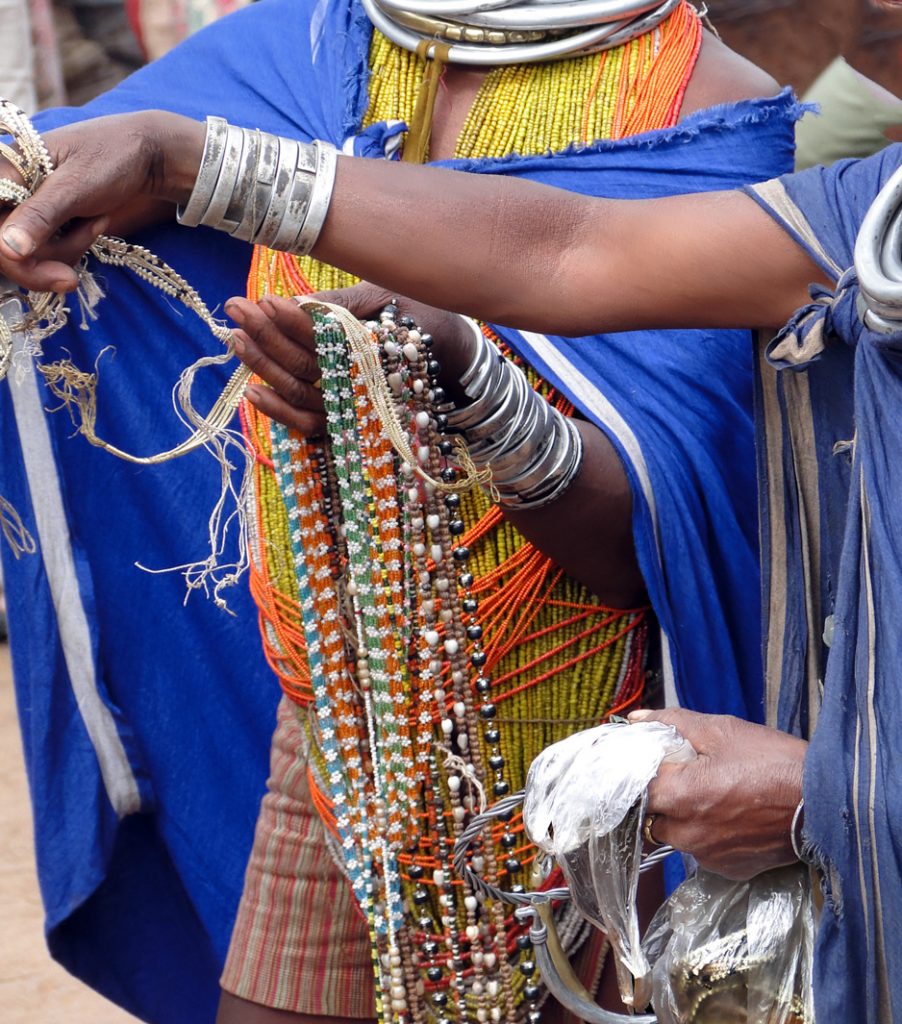
Bonda tribal women offer their handmade crafts at the weekly market in Ankadeli, Orissa in India
Have fun – don’t take this too seriously.
Negotiating a sale should be of benefit to both sides, not adversarial. Approach the process with a sense of adventure and enter into the social life. Your offer can’t insult the vendor, and nothing they say to you should be taken personally. Treat it as a game of charades. Even if you share few words in common, you can use gestures. Write your counteroffer if the seller doesn’t understand Many vendors have calculators to make your offer. Others write on their hands if paper isn’t available. (sometimes we’ve even scratched prices in the desert sand)
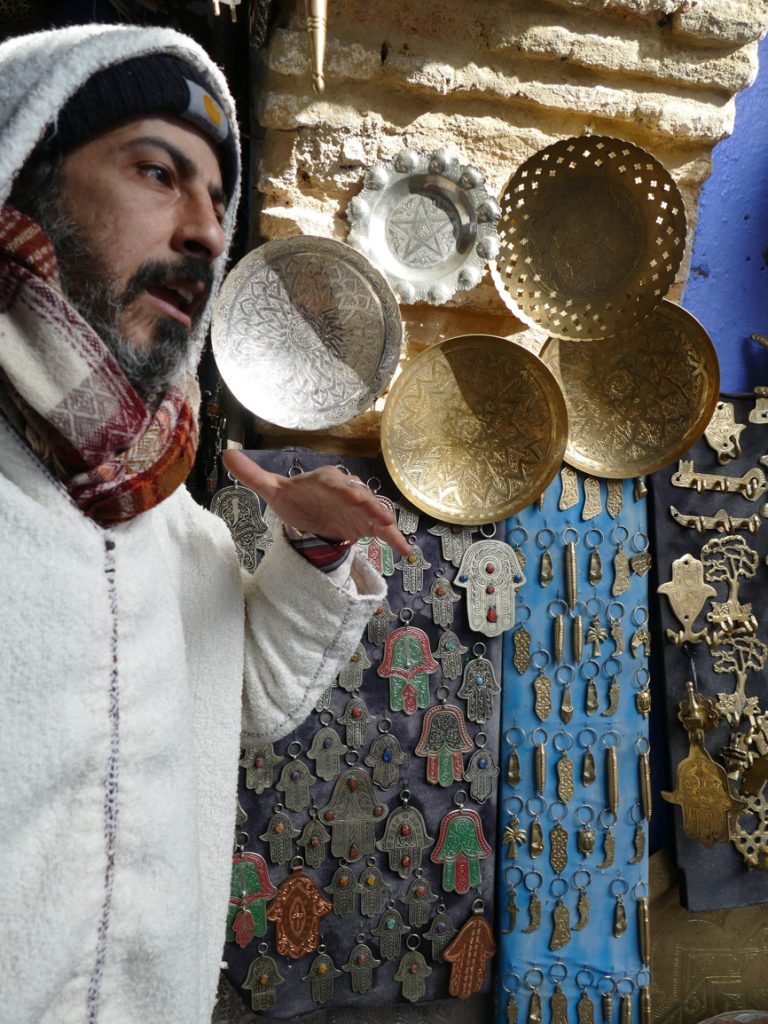
Pay what it’s worth to you
Ask what something is made of, but especially in markets, covered bazaars, and souks, be wary of claims that sound exceptional. Don’t expect to buy a camel for donkey prices. Ask questions before making any offer. Look at several items. You’re not likely to find antiques or high-quality jewelry on a tabletop but be alert as it can happen. Better quality metals should have a hallmark (eg, sterling silver should have a 925 mark). Usually, choose items because of their value to you, not because it’s claimed to be sterling silver or pure jade. In many countries, silver, gold and semi-precious stones in shops are sold by weight, with no consideration of the work involved. Look for hand crafted items. You’ll be bargaining not for the item, but for the price per gram of silver, etc.
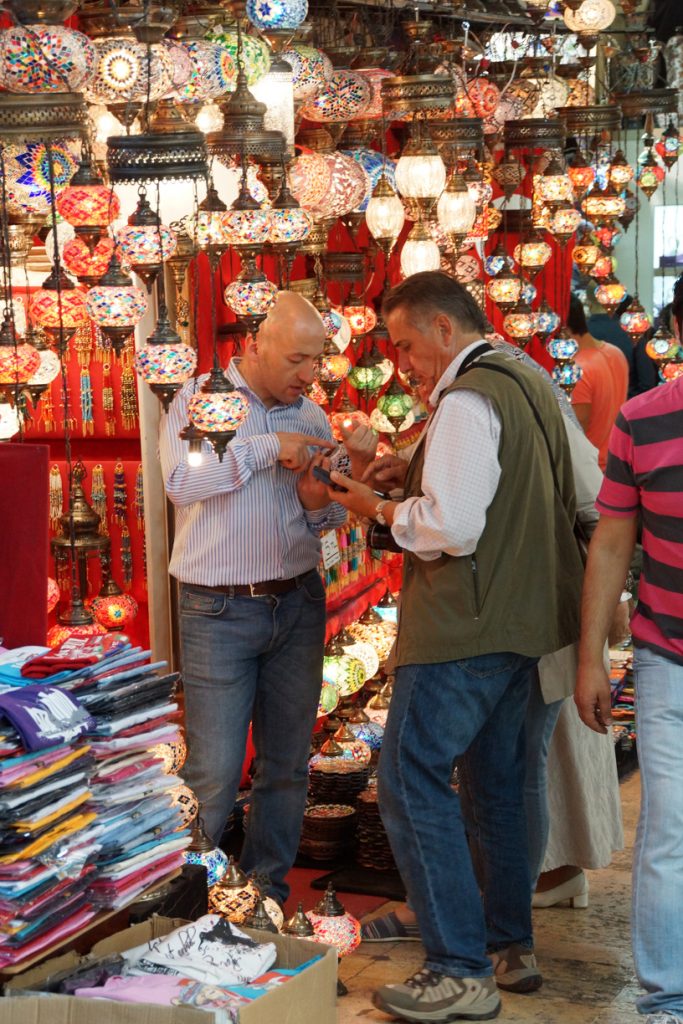
Sellers never lose
Don’t worry about offering too little. If you do, they’ll probably just laugh and ask you to give a little more. On rare occasions, a vendor might just say it’s too low and give up, so you have the option of raising your price or trying somewhere else. Walking away will usually let you know if your price is too low. If it’s within range the vendor won’t let you walk out without making a counteroffer.
But also consider who you’re dealing with – I’ll bargain harder for a higher priced item from a shop owner. But for roadside stalls, run by locals, while they’ll expect you to bargain, I don’t try to get the absolute lowest price, especially for items under $10
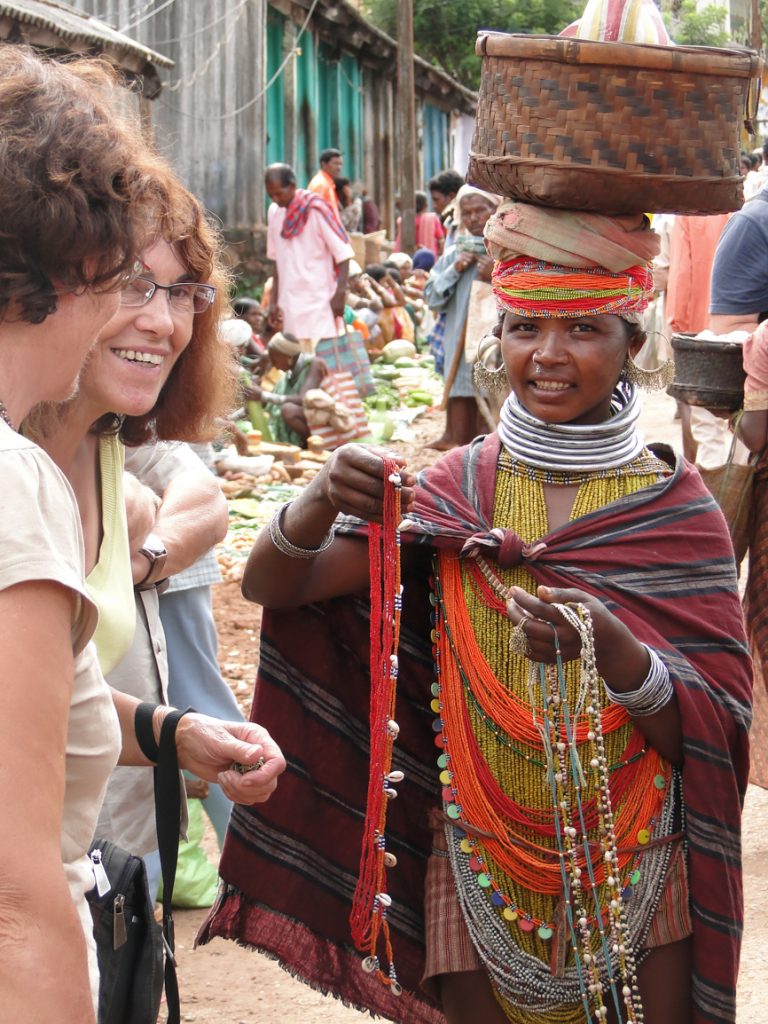
Make low offers at the start of a trip
An excellent way to gauge the marketplace, since there are no rules for pricing. Prices will vary from city to city and even market to market. Some guidebooks tell you to offer 1/3 or ½ the asking price, but astute vendors will have read these guidebooks too! This general rule can cost you money if the vendors are asking 5 or even 10 times what the item costs. On a trip to China, I saw the same item in different cities being offered for 250, 150 and 80 yuan. In all cases, the price I finally paid was between 15 and 30. I’ve negotiated 80-90% discounts when in a tourist area. They ask 100, I offer 5 and the jousting begins. Joking & exaggeration are expected.
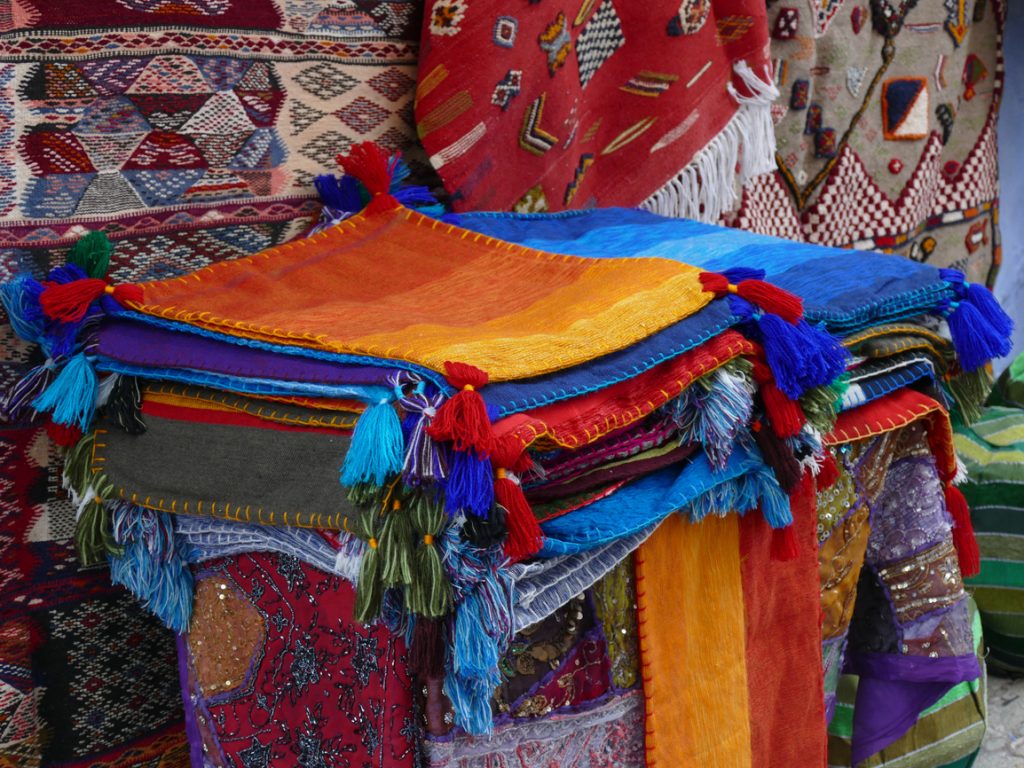
Accept local hospitality
You’ll often be offered tea or light snacks, occasionally even a meal. Accepting is expected, but don’t feel there’s any obligation. It can be an experience in itself – I’ve spent afternoon reclining on pillows, drinking tea and lazily watching as many items are brought out, and I select the ones of interest. Then the actual negotiating can begin. At the same time, I can enjoy watching hurried tourists quickly make their purchases without enjoying the moment
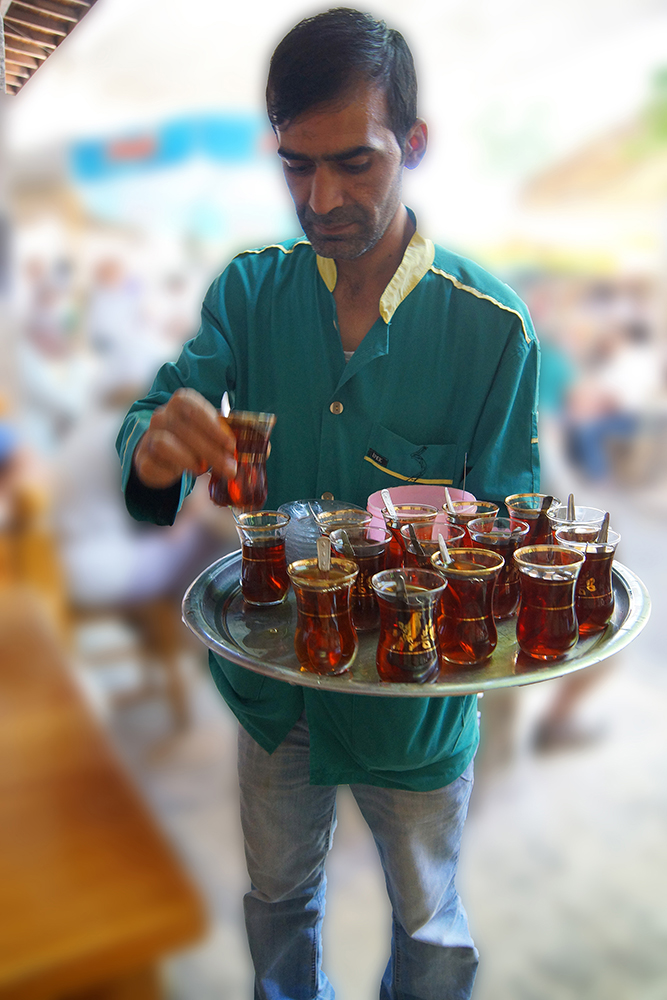
Prices in tourist areas are likely to be inflated
And if it’s a short-term area, such as a tourist bus- or boat-stop or outside a museum or other attraction, be ready to bargain quickly and sharply. These can be places to get very good prices, since the vendors sell high volumes, but they’ll also start very high. But don’t make a low offer if you’re not interested in the item at all – the buyer may take your offer, and the only real insult you can offer is to make an offer and then not honor it. Once you name a price, you should be willing to pay that price if the seller agrees. But you’re never obligated to come to an agreement.
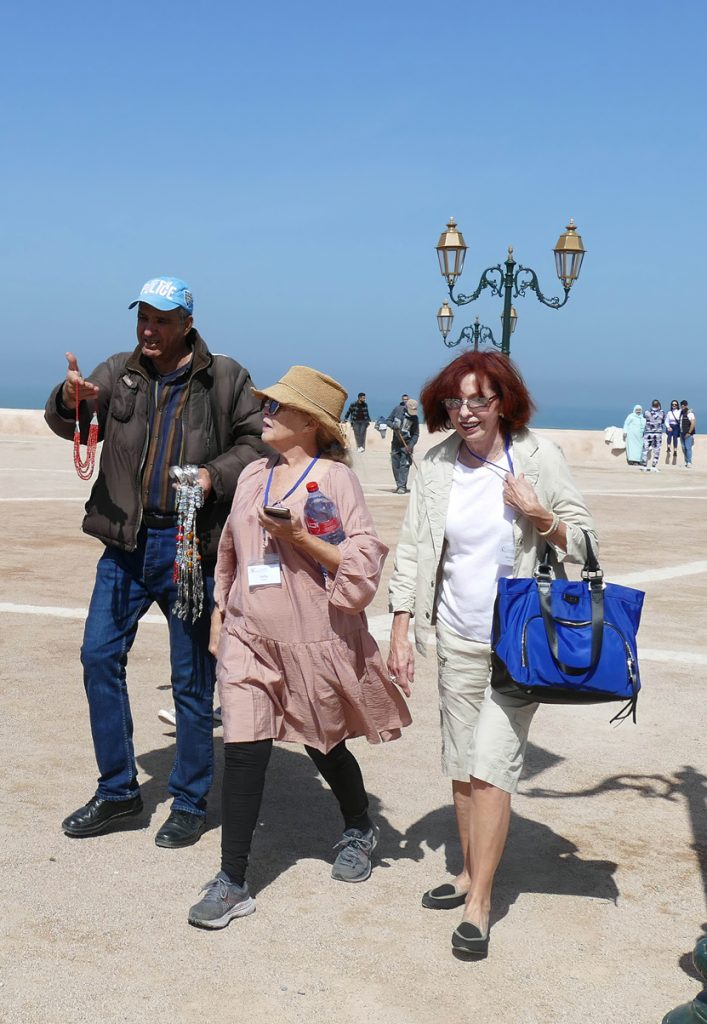
Quantity discounts
You’ll usually do better by combining several items. You might start bargaining for one item, then offer to buy 2 for a lower price. Or, if the bargaining is stalled, add another item to the pile and accept the buyer’s last offer. Changing currencies can be useful if you can do the exchange quickly in your head. Eg, after bargaining in the local currency, offer dollars instead. Locals will often be able to get a better rate of exchange than you can, or dollars might be a hedge against inflation in some countries, so US$ can sometimes command a 10-20% premium. If you pay by credit card, expect to pay a few percent more. Be a bit careful if you agree on a price in dollars and then decide to use a credit card — the amount should be entered in the local currency (otherwise you’ll pay 2 exchange fees). Check that the exchange rate used is a reasonable one
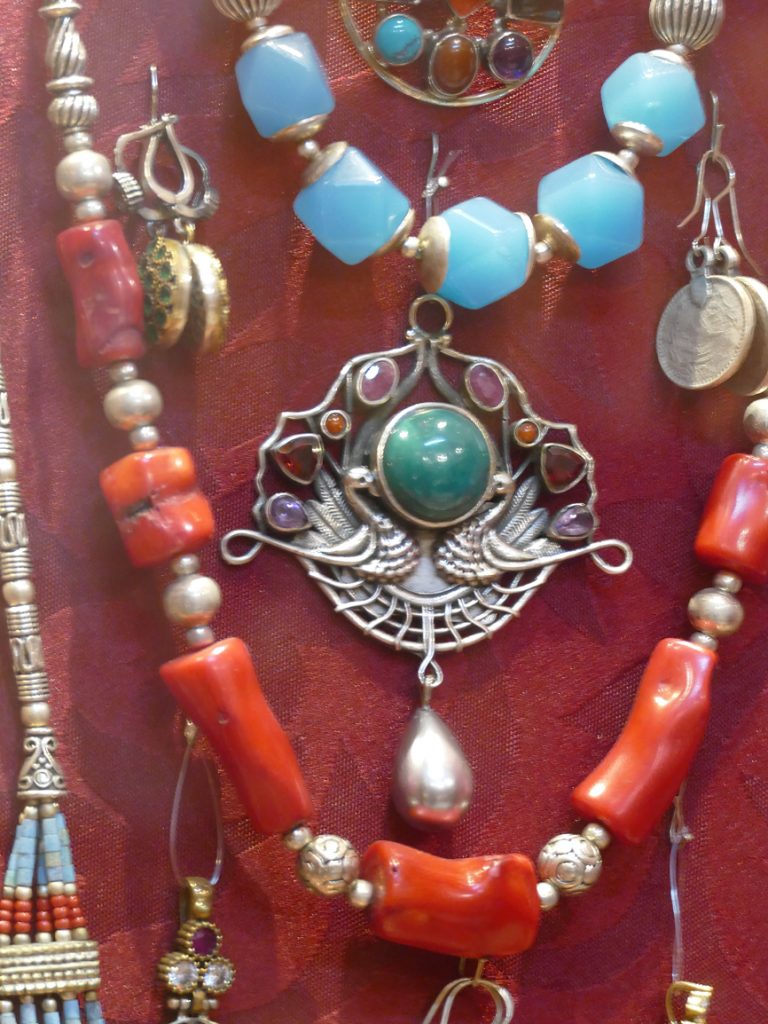
Using your local guides
This varies both by country and how long your guide will be with you. If the guide is just with you for the day or if you’re with a large, organized tour, it’s rarely useful to have them bargain for you. Some local guides don’t like to let their groups free in bazaars or souks, when they can earn a commission by taking them on a ‘factory’ tour.
(Other times the reason is just the hassle of keeping track of everyone, and then having the entire group wait when someone gets lost in the souk. If you’re on a large group tour like this, courtesy demands you stay with the group, and find time to return alone later.)
If a guide is with you for a longer time, they may be able to find special prices or items for you. Many guides have connections that can get you discounted prices (even with their commissions). Sometimes this can result in a good value – much depends on your skills, knowledge and appetite for bargaining. For example, in Egypt, a young man became my guide for the day and took me to several shops making inlaid boxes and other crafts. The prices were 50-75% lower than what I had been able to bargain for in the bazaars. The ‘guide’ of course expected (and got) a good tip, but everyone still benefits and these experiences are part of the fun of traveling.
Another problem with using a go-between is that you’ll need to tell them your actual price at some point, and how interested you are in an item. It’s also more difficult to use the walk-away ploy when a guide does your bargaining.
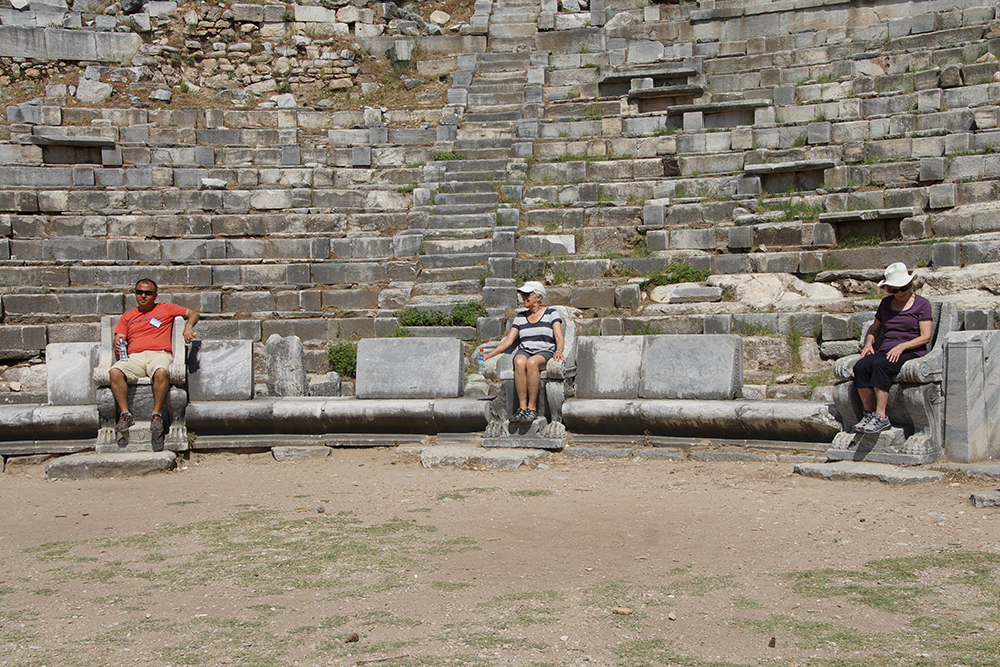
Factory tours
Some years ago, organized tours changed from only visiting established shops. Instead, such visits were renamed ‘educational’ stops at ‘factories’ which just happened to have extensive showrooms. If you educate yourself beforehand, you can use these stops to your advantage. The factory tours range from extremely informative to thinly disguised selling. You’ll often be told your group has a special discount (15-20% is common), but additional bargaining is usually expected. These places usually have higher quality items than what you’ll see on the street — especially if they do a lot of overseas shipping or other wholesale selling. And there will be a wider range of items to choose from. That said, you can profit from these tours too — with their wider choices, it can be an easier place to buy, even if you pay a bit more. You can also use this stop to your advantage — quiz the presenter, asking them how to tell their high-grade jade from what you just saw on the street for 1/10 the price, or what makes the difference in weaving techniques, etc. Since these shops usually ARE selling a higher quality, the answers will usually be informative and accurate.
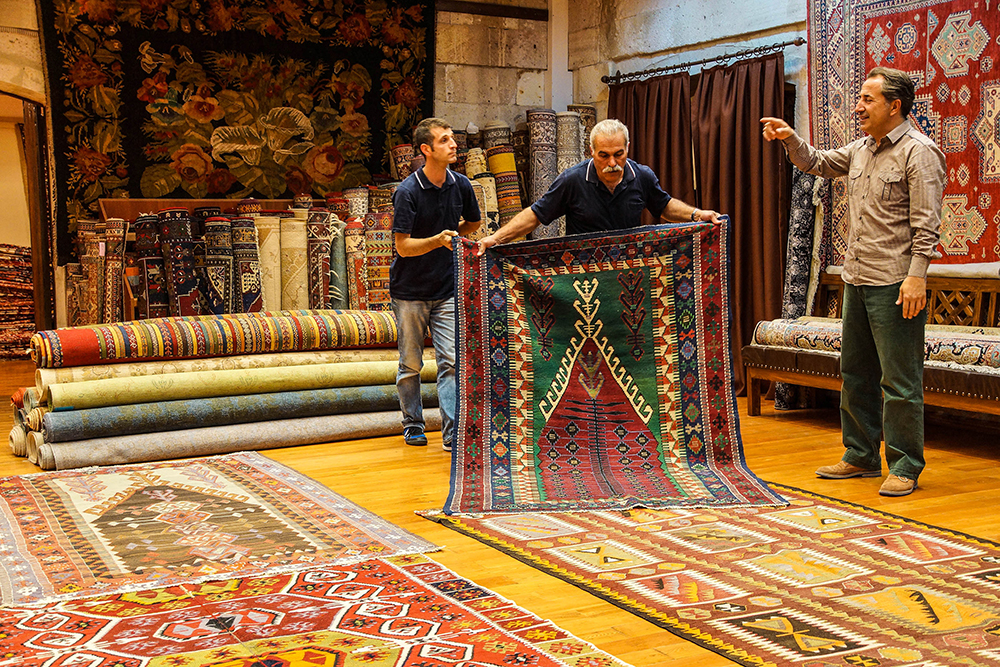
Your experience?
We welcome your comments & experiences in bargaining!